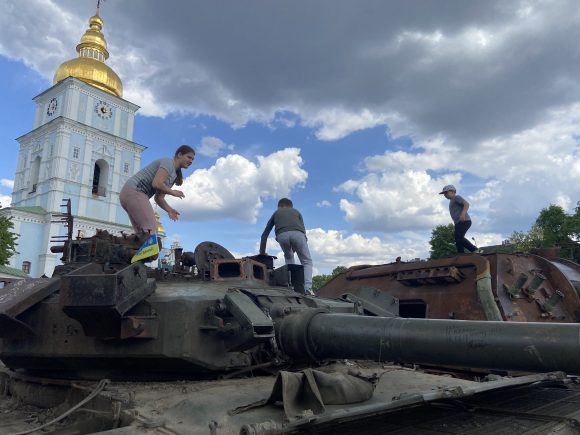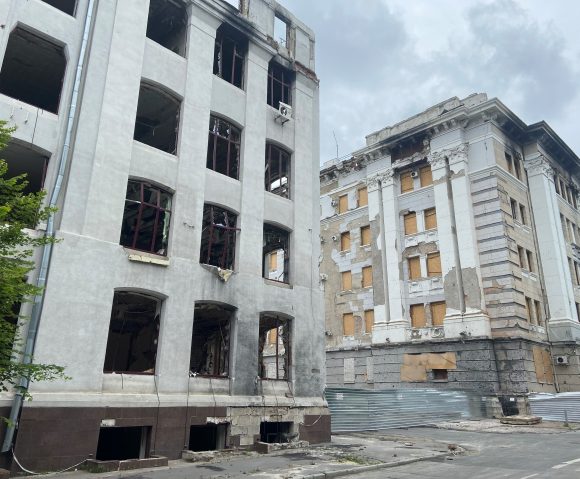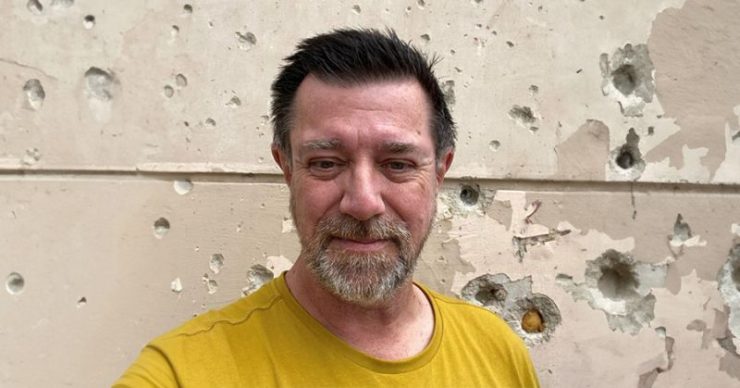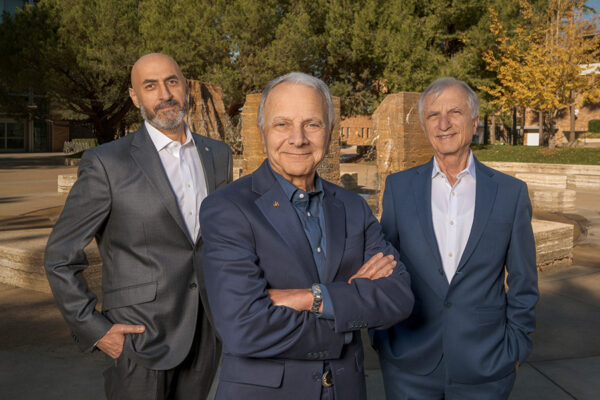Professor John Hall is spending his summer amid air raid alerts and a landscape marred by more than a year of war.
Hall, who teaches at Chapman University’s Fowler School of Law, is spending a little over two months in Ukraine working with the Kharkiv Human Rights Protection Group. He started in Kyiv – which Russia was targeting with missiles at the time – and then moved to Kharkiv, closer to the Russian border.


“After reading accounts of the mass murders, rapes, abductions of thousands of children, and widespread brutality, I felt that I had to do something,” he wrote in an email from Kharkiv in early June. “Sometimes it is not enough to act at a safe distance; you have to roll up your sleeves and get actively involved.”
Hall, an international law specialist, was invited to support Ukrainian lawyers as they build cases for war crimes against Russia. He’s investigated law relating to the disappearance of Ukrainians and legal filings alleging genocide in the Mariupol area, among other matters.
His main task, however, has been investigating the alleged destruction of Ukraine’s cultural heritage. More than 500 museums, libraries, art galleries, theaters, historical buildings, archives and monuments have been struck by missiles, burned or looted, he said.
“My argument is that this is not incidental to the invasion; it is the very essence, the heart, the core of the war,” he wrote. “Putin seeks to erase Ukraine and what it means to be Ukrainian, to disperse it, scatter it to the wind.”
Hall has assessed Russian liability under international treaties covering genocide and warfare, and he’s delved into developing the proposed crime of cultural genocide. His work will support the Kharkiv Human Rights Protection Group’s Tribunal For Putin initiative, which is building cases to file in the International Criminal Court and other bodies.
Hall also gave a lecture to Ukrainian lawyers that was “interrupted by an air raid alert – very much a first for me!” he wrote.
Hall is no rookie in international human rights work. He volunteered on the Greek island of Lesvos to support people fleeing Syria, Iraq and Afghanistan by boat from Turkey, and has worked with human rights groups in Cambodia and the Philippines. He is also not the only Chapman law professor working with Ukrainians – Michael Bazyler started the Ukrainian Mothers and Children Transport and is teaching the Ukraine War Law Practicum.
Hall said his contribution is “tiny” compared to the daily work of Ukrainian lawyers who are documenting alleged Russian crimes, filing cases and representing victims.
“I hope that I will have helped them in some way,” he wrote. “My work is absolutely fascinating, though depressing. But every day I am grateful to be here.”
When asked what he would share with the Chapman community, he wrote from Kharkiv that while the world’s problems seem insurmountable, “it is never too late, never impossible to stand up for what you believe in.”
“You can change the world, but you will change nothing unless you try,” he wrote. “And remember: the fascist dictators and wannabe autocrats, the racists and those who seek to oppress and destroy, will always ultimately fail. They use fear, violence and intimidation to silence dissent, but they are ultimately pathetic, insecure and weak. So, stand up! You will be amazed how many other people stand up with you.”




